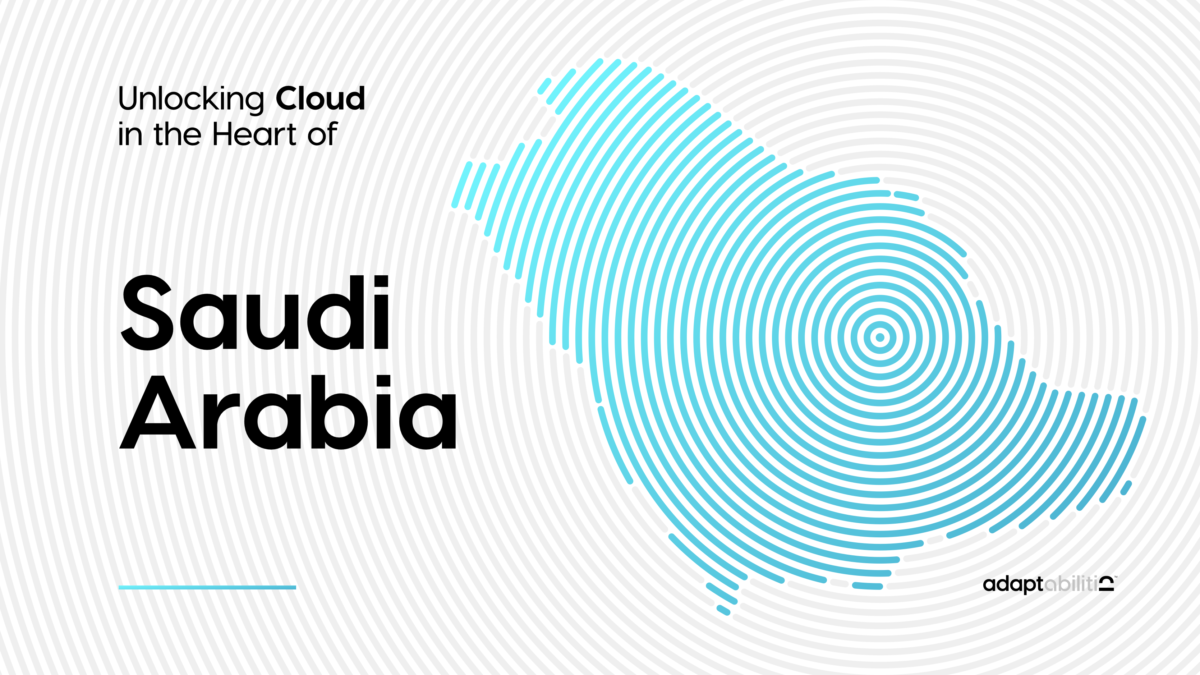Unlocking Cloud in the Heart of Saudi Arabia
Unlocking Cloud in the Heart of Saudi Arabia

Why KSA is Embracing Cloud Services
by Faisal Saleem | Principal Cloud & DevOps Consultant
The Kingdom of Saudi Arabia (KSA) is rapidly embracing cloud services as a key part of its Vision2030 digital innovation and technology strategy. In recent years, more and more businesses and government organizations in KSA are turning to cloud computing to achieve greater agility, enhanced security, reduced costs, increased capability, and improved resource management. The government has also released a number of directives/guidance protocols pertaining to cloud adoption. Below we delve into the reasons why KSA is embracing cloud services, highlighting the benefits that cloud computing brings to the country.
Agility:
One of the primary drivers for KSA’s adoption of cloud services is agility. Cloud computing eliminates the need for organizations to buy, build, and configure hardware, which can take a long time and be costly. With cloud services, organizations can deploy applications and services much quicker, reducing their time to market drastically. The agility that cloud services offer is particularly important in a fast-paced digital economy, where businesses need to be able to adapt and respond quickly to changing market conditions. The ambition of Vision2030 which is a relatively small amount of time, necessitates that organisations look to services that allow them to release to market at a much more rapid pace than traditional self-built infrastructure can allow, this is exactly what cloud services provide.
Security:
Another key reason why KSA is embracing cloud services is security. Cloud providers are much larger in scale, which means they have more experience, expertise and can gather more data to analyse in securing their infrastructure. The security capabilities and features of cloud services are often more advanced than those available in on-premise or data centre solutions. In addition, fixes and enhancements to security features are available much quicker in cloud services than with traditional IT infrastructure. With more and more start-ups, new organisations, and hence services popping up in the Kingdom, security becomes a key focus area in order to meet the government’s data protection and data sovereignty laws.
Cost:
Cost is also a major factor driving KSA’s adoption of cloud services. Cloud services are typically more cost-effective than buying and hosting on-premise or datacentres. With cloud services, organizations can better understand their costs, as pricing is usually transparent and easily accessible. Moreover, cloud providers often offer significant discounts for long-term commitments, which can help organizations save even more on their IT expenses.
Capability:
Cloud services also offer increased capability to organizations in KSA. Cloud providers are constantly investing in cutting-edge technology, including advances in high-performance computing, storage, and other areas. Cloud services also incorporate many third-party technologies, making it easier for organizations to integrate different systems and tools into their workflows. The time to market for enhancements and new services for cloud capabilities are increasingly more rapid, giving the consumer more capabilities much faster than would be possible traditionally.
Resources:
Another benefit of cloud services is resource management. Cloud services enable organizations to optimize their use of IT resources, ensuring that they are always available when needed. With cloud services, organizations can scale up or down their IT infrastructure in response to changing demand, without having to worry about buying or maintaining additional hardware. This capability is also much more cost-effective as consumers don’t have to run at their highest levels of demand all the time and instead pay more when demand increases but when it decreases the cost also reduces.
Integrations:
Finally, cloud services offer a high degree of integration with other systems and applications. Cloud services can easily be integrated with other cloud services, as well as with on-premise solutions. This makes it easier for organizations to manage their IT infrastructure, as they can use a single platform to manage multiple systems and tools.
In conclusion, KSA’s adoption of cloud services is driven by the many benefits that cloud computing offers and the aggressive nature of Vision2030’s timescale. Cloud services provide greater agility, enhanced security, cost-effectiveness, increased capability, and improved resource management. As KSA continues to invest in Vision2030, cloud services are likely to play an increasingly important role in the country’s IT landscape. Abiliti is Saudi born that offers a comprehensive service and decades of experience from professionals that have worked around the world, to help organisations in the Kingdom in ensuring they get the best in class out of their cloud services.


